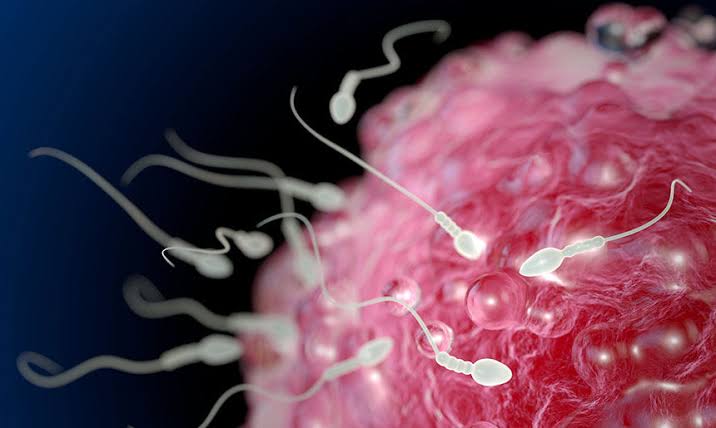Based on the pathophysiology of this insidious coronavirus, the research team behind a new report suggest the disease could:
Target male reproductive organs due to the high expression of ACE2 receptors in the testis and cause temporary or permanent tissue damage. ACE2 receptors are the main “entry-point” by which Covid-19 invades the body’s cells.
Interfere with sex hormone and sperm production.
Cause inflammation and contribute to erectile dysfunction (a possible signal of poor cardiovascular and pulmonary health).
Lead to stress that jeopardizes reproductive and sexual health as well as fertility.
Taken together, the disease could, per the report, pose a “global threat to male fertility potential.” A growing number of studies suggest men are more likely to be severely affected by Covid-19 than women.
COVID-19 AND MEN’S SEXUAL HEALTH
Since Covid-19 emerged, scientists have primarily focused on keeping patients alive by preventing the diseases’ most deadly symptoms. However, some interest has shifted toward the novel coronavirus’s less obvious effects — including those on sexual and reproductive systems.
In a review of Covid-19 studies published Wednesday in the journal Open Biology, researchers outline how the disease may influence men’s reproductive health.
“Emerging evidence indicates toward the possibility of testicular damage due to Covid-19, which in turn may compromise the fertility potential of such men along with the disruption of the normal production of sex hormones,” study co-author Shubhadeep Roychoudhury tells Inverse.
Roychoudhury is a biotechnologist at Assam University in India.
Roychoudhury and his colleagues are quick to preface the article by stating that the evidence is “preliminary in nature.”
There’s simply not the long-term, large-scale data needed to make firm predictions. Despite this, the researchers argue there is cause for concern based on how Covid-19 invades the body.
- TARGETED INVASION
Overall, the study team lists four ways Covid-19 may threaten male fertility.
The research team suggests the high expression of ACE2 receptors — the virus’s favorite entry-point — in the testis is a concern. The presence of the ACE2 receptor on germ cells, Leydig cells, and Sertoli cells in the male genital system makes it a potential target of SARS-CoV-2 infection, the scientists say.
Furthermore, some researchers report Covid-19 causes a reduction of Leydig cells, while Sertoli cells can become inflamed and detached. These cells are critical for reproductive health and sperm production.
- INFLAMMATION
There’s also worry Covid-19’s effects and resulting inflammation could cause temporary or permanent damage to reproductive tissue. Hyperinflammation around the heart and surrounding muscles may also block or narrow blood supply to the penis, causing erectile dysfunction.
Research published in July suggests Covid-19 can exacerbate cardiovascular conditions, increasing the risk of erectile dysfunction and the chance of developing “sexual and reproductive health issues.”
Total inflammation of the testicles, a condition called orchitis, doesn’t appear to be common. However, the report authors explain immune system overreactions called cytokine storms, along with high fevers, may lead to orchitis. It can cause permanent reproductive function damage.
- INTERFERENCE
Covid-19’s resulting system-wide inflammation can also send the endocrine system out of whack. In turn, men’s testosterone and other sex hormone levels can be disrupted, compromising fertility.
“The most pressing downstream effect that needs to be investigated is whether the inflammatory effects resulting from the viral infection in the testicular tissues and epididymis has the potential to disrupt the process of spermatogenesis and further compromise the viability of sperm cells,” Roychoudhury says. (Spermatogenesis is the origin and development of sperm cells.)
- STRESS
Pandemic-related stress, anxiety, and depression can also cause a change in mood. Studies suggest this can also affect sexual health.
Studies suggest between 25 and 60 percent of infertile individuals significantly higher anxiety and depression than fertile men. Scientists don’t know for sure which came first — the stress or infertility.
However, the research team still suggests mental health protections as an avenue for protecting fertility.
“SARS-CoV-2-infected men should be provided with psychological consultation in time to avoid irrational fear and excessive stress, as these may indirectly affect their reproductive health and well-being,” Roychoudhury says.
Covid-19 can also cause an uptick in oxidative stress — an imbalance between free radicals and antioxidants in the body that can threaten sperm health. Elevated levels of oxidative stress can affect sperm’s structural and functional integrity, including how it swims, its shape and count, and it’s viability.
THE IMPORTANT TAKEAWAY
Tissue damage, hormonal imbalances, cellular interference, inflammation, and stress could all work (individually or in tandem) to disrupt men’s sperm production as well as reproductive and sexual health.
But so far, data remains “insignificant” in regards to the long-term effects of Covid-19 on male fertility, Roychoudhury says. Researchers don’t know if or how long any potential effects might last.
“Further clinical trials involving male Covid-19 patients of reproductive age as well as longitudinal studies in pediatric patients will help understand the long-term effects of SARS-CoV-2 infection on testicular functions and spermatogenesis,” Roychoudhury adds.
It will be pivotal to look to see if Covid-19 infected men who had previously conceived a baby are able to conceive again, he says. Until we get those answers, the scope of understanding Covid-19 and sexual health, as well as the potential solutions, are limited.
In the meantime, it is known men are more likely to die from Covid-19. Studies suggest these deaths are influenced by viral load and immune system response, but they may also link back to genetics or sex hormones. As studies continue, it’s best to wear a mask, wash your hands, and keep your distance.
Note: this Article was first published on inverse
















